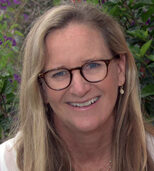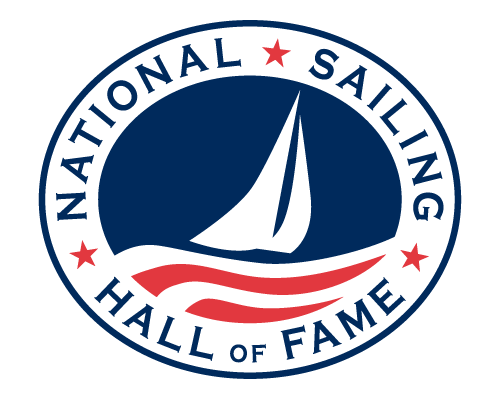
Jennifer Anne Fetter
December 1, 1963 -
La Jolla, California
Role Model
Scuttlebutt interview with JJ Fetter – YouTube JJ Fetter profile in Sailing World – July 2005 “JJ Fetter – Getting the most out of high school sailing” – Scuttlebutt.com “It all started with fast food” – LA Times “Sailing ace JJ Fetter has the eye of the wind as she now helms special events” – La Jolla Lite “JJ Fetter Isler blazed sailing trail for women” – JibeTalk
One remarkable aspect of JJ Fetter’s success is the variety of boats and racing formats in which she has prevailed. She did well in Sabots at age seven. At Yale, she was a college all-American. She’s won the women’s keelboat championship; she won her class skippering an 48-footer at Key West Race Week; she was tactician and starting helmsperson on the 1995 America’s Cup contender, Mighty Mary ; and in the 470 she won the World Championships (1991), and bronze (1992) and silver (2000) Olympic medals. Along the way she was voted Rolex Yachtswoman of the Year a record four times. JJ is engagingly modest. She credits her Sabot success to weighing only 80 pounds. “I was able to keep that blunt, Sabot bow out of the water,” she says. “I’d follow my brother around the course, to his annoyance, then drift by him. In Sabots, I sailed against talented guys like Brian Ledbetter (three time all-American). The great Star sailor Mark Reynolds was one of my teachers. And in those days, the San Diego America’s Cup sailors were always around, testing. It was exciting.” Fetter graduated from college in 1985, a year after the 470 had been designated a women’s Olympic class. “I was in the right place at the right time,” JJ says. “Jan O’Malley (twice Rolex Yachtswoman of the Year) pushed to get college sailors into the 470. Women like Lynne Jewell, Allison Jolly, Betsy Allison, and Corey Sertl – all a couple years older than me – led the way. Allison and Lynne won gold in 1988. They all moved on. I stuck with it. And I had great crews, the most important person in a 470. Steering with sail trim and weight adjustment is faster than using the rudder, and that was up to Amy (Wardell, 1986), Pam (Healy, 1992) and Pease (Glaser, 2000), who were also calling puffs and shifts.” JJ recalls the 1986 European Championships as one of her favorite regattas, not just because she and Amy Wardell won it. “Each day one of the sponsors, a beer company, had the top three teams stand on little boxes while everyone toasted them. We were all parked in the same area. If there was a squall, we all helped one other. The America’s Cup syndicates should be in one big compound, not separated as they are. The loser would have to suck it up each day, walk over to the winner and say, ‘good job.’” – Roger Vaughan
Preserving America’s Sailing Legacy
Engaging Sailing’s Next Generation
Stay Connected to the National Sailing Hall of Fame
